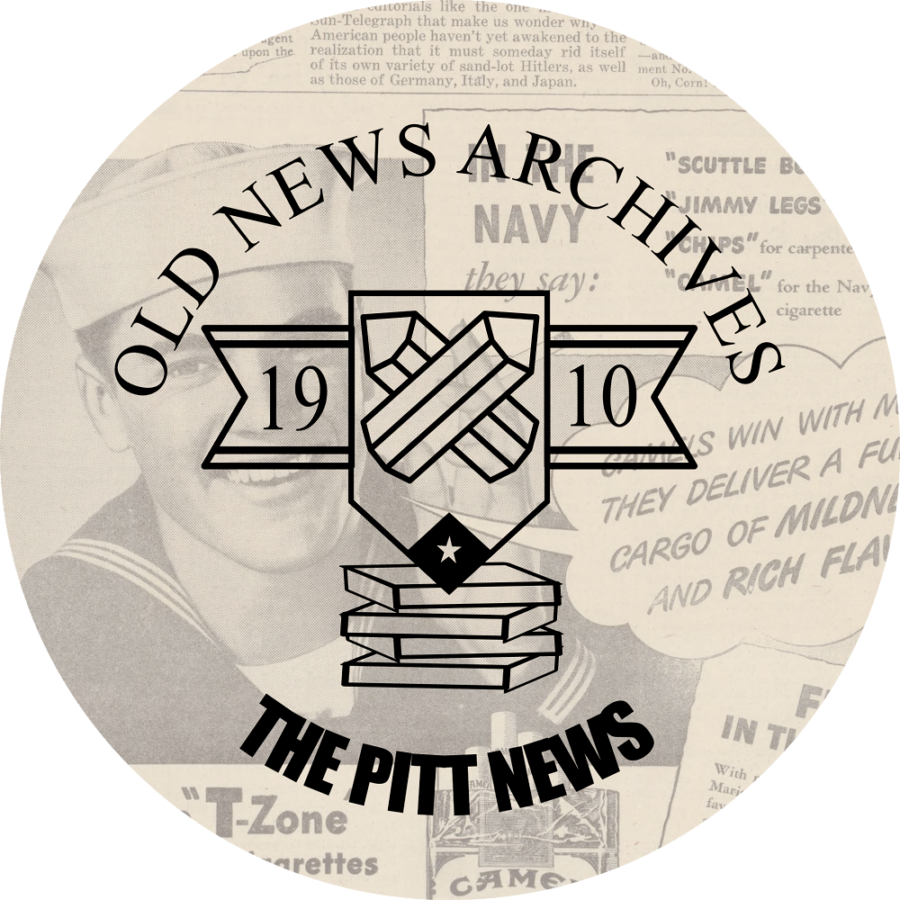Old News: Booze, the news and Alito
January 29, 2020
The Pitt News, along with thousands of other student publications, is celebrating Student Press Freedom Day on Wednesday. We’ve written a little about the present state of student journalism at Pitt, along with some of our concerns about the future of student press freedom in general. So here’s one of our stories of student press freedom past — the time The Pitt News took the Pennsylvania state government to court and won.
Pennsylvania’s Act 199, passed in 1996, prohibited “any advertising of alcoholic beverages” in most mediums of mass communication affiliated with a college or university. Advocates felt that the law prevented underage drinking, but others — including the student editors and business staff at The Pitt News — felt it restricted First Amendment rights.
The case began in 1999 and stretched until 2004 — not an atypical length for a court case, but the five-year duration meant that a number of student leaders at The Pitt News came and went while the case was happening. The lawsuit was mostly handled by the newspaper’s lawyers, of course. But it began in the business office of The Pitt News, when The Pitt News’ general manager, Terry Lucas, got a fax in 1997 from the owner of Fuel & Fuddle. The restaurant had been informed by the Pennsylvania State Police that it could be subject to a fine for having advertised its alcoholic offerings in The Pitt News.
“Based on this notice, the owner of the restaurant canceled its advertising contract with The Pitt News, and the paper, in order to protect its advertisers, felt compelled to stop accepting alcoholic beverage advertisements,” the final opinion read.
The paper claimed to have lost $17,000 in advertisements in 1998 alone, leading it to the decision to sue, and filed a complaint against the state in U.S. District Court in April 1999. The court initially ruled against The Pitt News, saying that the law “has no effect on The Pitt News’ freedom of expression” since the paper could print whatever it wanted about alcohol outside the ads.
When the paper appealed the case, though, it managed to get the answer it wanted. The opinion striking down the law was written by Samuel Alito, then a judge for the Third-Circuit Court of Appeals, who became a Supreme Court Justice in 2006.
“We conclude that [the law] is unconstitutional as applied to The Pitt News for two reasons,” Alito wrote. “First, the law represents an impermissible restriction on commercial speech. Second, the law is presumptively unconstitutional because it targets a narrow segment of the media.”
Greg Heller-LaBelle, the editor-in-chief for the 2004-05 school year, greeted the returning student body with the news in his letter at the front of 2004’s thick August Welcome Back edition.
“Some things about this newspaper might lead you to think that it’s actually a reprint of last year’s Welcome Back issue … But some things are very different,” Heller-LaBelle wrote. “Now you’ll see alcohol-related ads in the paper, which some legislators think will lead to a rash of underage drinking. I, knowing that Pitt students don’t like the taste of beer, respectfully disagree.”
That specific issue, although it was full of advertisements, didn’t include any which advertised alcohol — even the one for Mad Mex.
Heller-LaBelle said more to The Daily Pennsylvanian, the University of Pennsylvania’s student paper, which published a story on the verdict in early September.
“Psychologically, it is a combination of relief and excitement. We are happy we can finally control our content,” he said. “The important thing is that now … running [the ads] is going to be a debate but now it is our decision to include it.”



